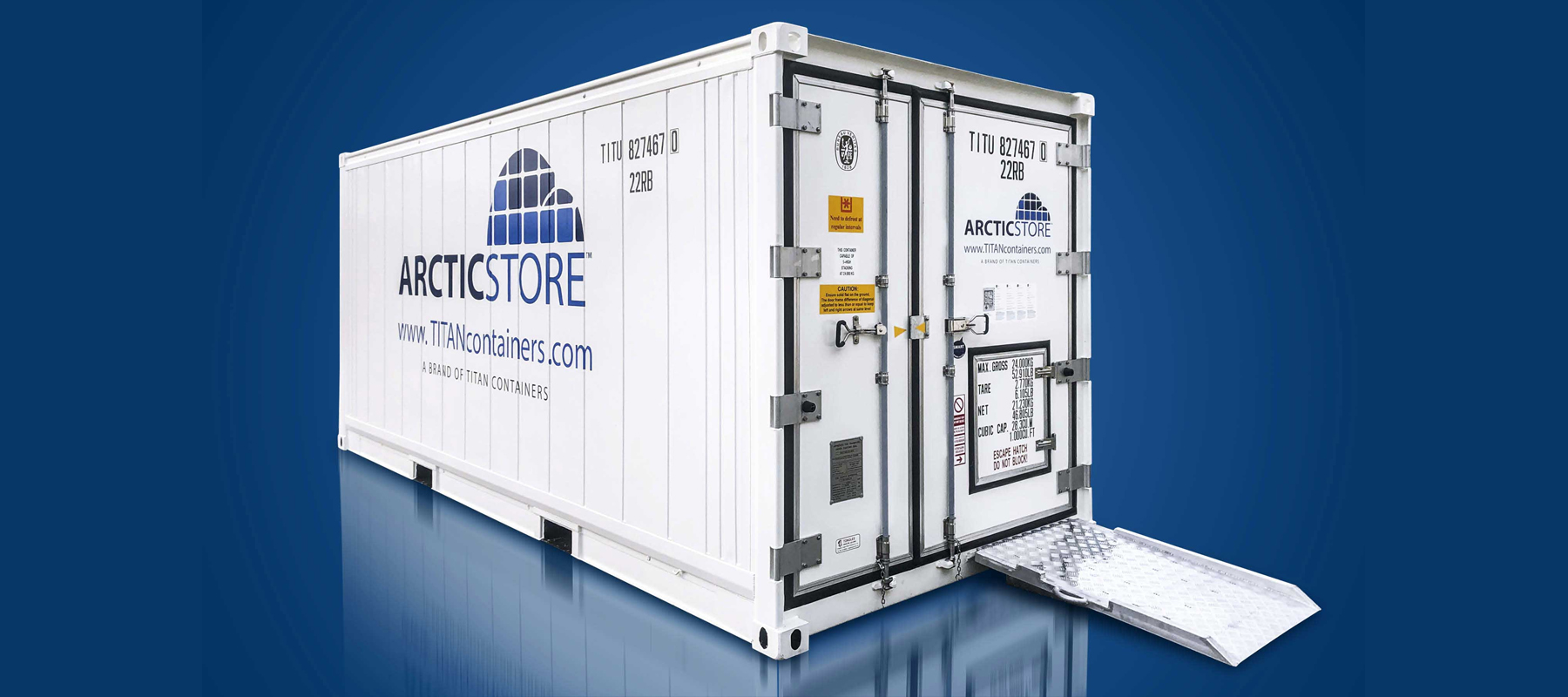Pricing Guide for Refrigerated Storage Containers: How to Save Money
Last Updated: January 17, 2023

Fact Checked By: Ryan Maguire
On This Page
CostOwl.com note: Need a storage container at an affordable price? Fill out the 30 second questionnaire below and our storage container partners will send you free price quotes.
Refrigerated containers are used to ship or store perishable goods such as chilled foods, dairy, frozen foods, fruit, meat, seafood, and vegetables. If you are storing or transporting items that need to be chilled or frozen, a refrigerated container is crucial.
What Are Refrigerated Storage Containers? #
Also referred to as reefer containers, refrigerated containers are used when the goods being transported need to be kept within a certain humidity or temperature level. These containers use a three-phase power supply that allows them to keep a constant temperature ranging between -13 degrees Fahrenheit (-25 degrees Celsius) and 77 degrees Fahrenheit (25 degrees Celsius). They are available in 20' and 40' lengths, as well as 40' high cubes.
When loaded on a ship, refrigerated containers are connected to the ship's power supply. If that fails, or does not provide the required energy, they are equipped with a diesel generator and power pack. When loaded on a truck, they are powered by their own generator.
Types and Benefits of Refrigerated Storage Containers #
Refrigerated shipping containers come in two main types: integrated containers and porthole containers.
- Integrated containers: As the name suggests, these containers have an integrated cooling system, which makes it easier for the container to switch between types of transport. These containers can easily be moved from sea to road or rail without complication.
- Porthole containers: This type of refrigerated container earns its name from the two ventilation holes in the rear wall. Cold air is pumped inside through the holes and warm air sent out to keep the correct temperature. Porthole containers need to be connected to a system that cools the air before pumping it in. These containers are used less and less as companies shift to integrated models.
How Much Do Refrigerated Storage Containers Cost? #
It is difficult to provide an exact cost for refrigerated storage containers, as the size, type, condition, whether you buy new or used, and the seller you purchase from all affect the total price. Here is a general pricing guide to give you an idea of what you can expect to pay for your refrigerated storage container:
- A new 20' refrigerated storage container has an average cost between $5,600 and $7,000.
- A used 20' refrigerated storage container has an average cost between $3,900 and $4,400.
- A new 40' refrigerated storage container has an average cost between $10,000 and $12,000.
- A used 40' refrigerated storage container has an average cost between $4,600 and $6,300.
- A new 40' high cube refrigerated storage container has an average cost between $10,000 and $12,400.
- A used 40' high cube refrigerated storage container has an average cost between $4,700 and $6,400.
- Renting is also an option, with refrigerated container rental costs averaging between $30 and $85 per day.
- Some companies may require at least a one-month rental, which has an average cost between $995 and $2,495, depending on the size of the container and any add-ons.
Note that add-ons and customizations increase your overall costs.
What to Look for in a Refrigerated Container #
While price is an important factor when looking for refrigerated containers, it should not be the only factor. As you peruse different models, consider the following:
- Condition: When looking at any type of storage container it is important to inspect the overall condition of the unit, but especially for refrigerated models. Keep an eye out for air leaks, dents, insulation issues, odors, and rust. The unit should be weatherproof, with no way for wind or rain to get inside. It is also important to ensure that the refrigeration unit is in proper working condition.
- Construction: You want to ensure that the container is made of durable, reliable materials. Otherwise, you could face problems spoilage or other damage during transportation or storage.
- Suitability: It is important to think about all of your needs when looking at refrigerated containers to ensure you purchase or rent the proper model. Consider your height and length requirements of your load, as well as the spaces the container will need to fit. The container should also have received some type of inspection that declared is cargo worthy and/or seaworthy, or you could end up with a container that breaks down during transport.
Resources:
- OSHA: Safe Plugging and Unplugging Reefer Units
- Everything You Want To Know About Reefer Shipping Container Refrigeration
Use Our Free Service and Find Storage Container Dealers Near You
